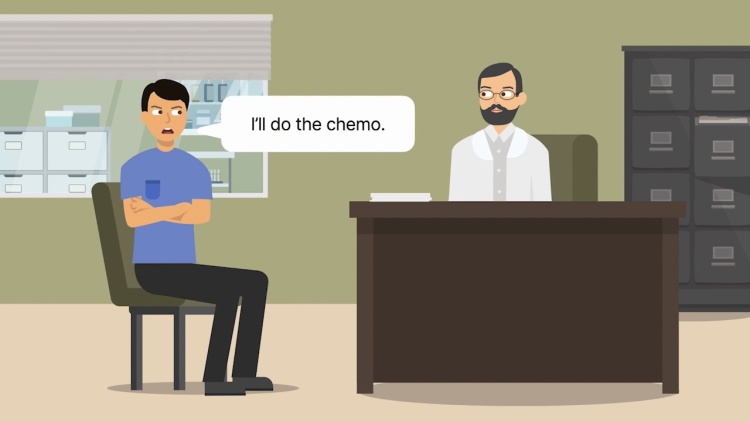Arato v. Avedon
Supreme Court of California
858 P.2d 598 (1993)
- Written by Craig Conway, LLM
Facts
Arato completed a routine questionnaire that asked, among other things, whether he wanted to be “told the truth” about his pancreatic cancer condition. Arato answered yes. The oncologists, including Dr. Melvin Avedon (defendant), recommended a course of chemotherapy medication and radiation treatment. Arato and his wife were never told the statistical probability of his survival. Arato nor his wife ever asked for life expectancy information and Arato’s operating surgeon did not disclose statistical life expectancy data because Arato was extremely anxious about his condition. Avedon also did not disclose the specific statistics because the direct disclosure of extremely high mortality rates for pancreatic cancer would negatively impact Arato’s hope for a possible cure. About eight months after his surgery, Arato’s cancer returned and quickly spread. He died shortly thereafter. Arato’s wife (plaintiff) filed suit against Avedon, his surgeon, and the other physicians alleging that they had not adequately disclosed statistical mortality information of the cancer and thus failed to obtain his informed consent to undergo the treatment. His wife claimed that had he known the bleak truth regarding his chance for survival he would not have sought treatment and, instead would have chosen to die peacefully at home. At trial, all of the physicians testified that statistical life expectancy data obtained from large groups had little predictive value when applied to a particular patient with individual symptoms, history, etc. The jury found in favor of Avedon. A divided court of appeals reversed and ordered a new trial. Avedon petitioned the California Supreme Court to review the decision.
Rule of Law
Issue
Holding and Reasoning (Arabian, J.)
What to do next…
Here's why 907,000 law students have relied on our case briefs:
- Written by law professors and practitioners, not other law students. 47,100 briefs, keyed to 996 casebooks. Top-notch customer support.
- The right amount of information, includes the facts, issues, rule of law, holding and reasoning, and any concurrences and dissents.
- Access in your classes, works on your mobile and tablet. Massive library of related video lessons and high quality multiple-choice questions.
- Easy to use, uniform format for every case brief. Written in plain English, not in legalese. Our briefs summarize and simplify; they don’t just repeat the court’s language.





